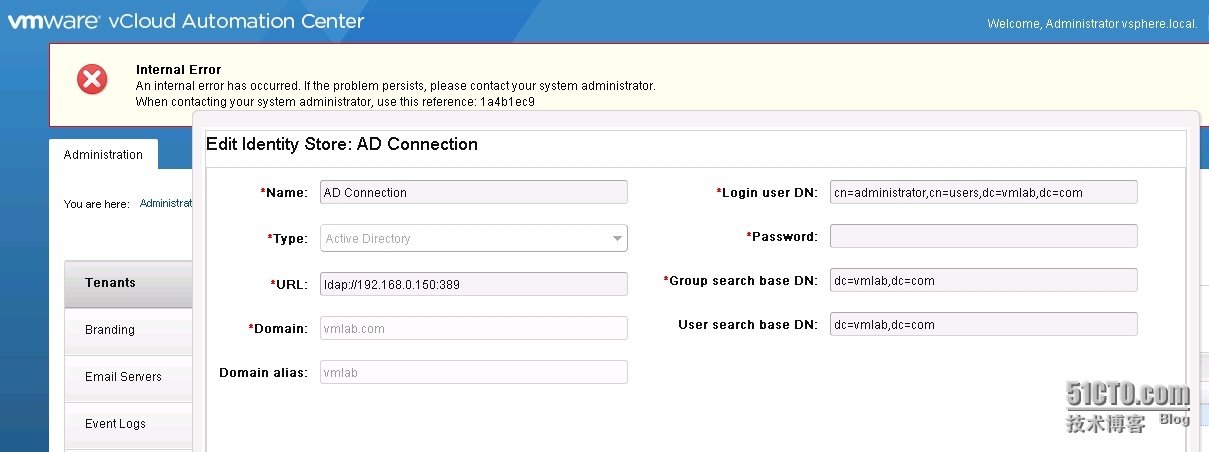- 虚拟机网络设置最佳实践
2401_85327573
网络服务器linux
一、虚拟网卡配置1.1设置虚拟网卡点击VMwareNetworkAdapterVMnet8设置虚拟网卡注意要点:设置静态IP,地址为:192.168.2.100设置子网掩码(默认):255.255.255.0设置默认网关:192.168.2.1(重要!!!这里要跟下面虚拟机网络设置中的NAT设置中的网关IP一致)二、设置虚拟网络编辑器2.1虚拟网络编辑器①点击编辑==>虚拟网络编辑器==>点击更改
- 推荐优秀的开源软件合集
獨梟
推荐工具开源软件
在信息化高度发达的今天,数据安全与远程协作变得越来越重要。很多企业和个人都在寻找可替代商业闭源软件的开源解决方案。今天,我们向大家推荐几款优秀的开源软件,涵盖私有云存储、远程桌面、团队协作、内容管理等多个领域。1.Nextcloud——自建私有云存储的最佳选择Nextcloud是一款功能强大的开源私有云存储和协作平台,它的主要特点包括:开源免费,核心功能完全开放,支持自行托管文件同步&共享,支持桌
- Linux(Centos 7.6)基本信息查看
豆是浪个
linuxcentos运维
1.服务器硬件信息查看1.1.服务器厂商、产品名称查看dmidecode-ssystem-manufacturer:查看服务器厂商信息dmidecode-ssystem-product-name:查看服务器产品名称信息1.Windows使用VMware安装的Linux(Centos7.6)后,服务器厂商、产品名称信息查看。[root@localhost~]#dmidecode-ssystem-ma
- LINUX本地磁盘DISK空间扩容
数据库急诊日记
Linuxlinux运维服务器1024程序员节pythonsqljava
vmware虚拟机本地磁盘空间不足,虚拟机层面扩容原有磁盘/dev/sda从50G到100G,系统层面fdisk划分磁盘分区,创建pv,添加到vg,扩展lv,xfs_growfs刷新文件系统空间。1.磁盘空间现状df显示/总大小50G[root@glodendb~]#df-hFilesystemSizeUsedAvailUse%Mountedon/dev/mapper/rhel-root45G18
- windows安装虚拟机
linux
1.下载VMware,一直点next即可。2.在下面给出的这个位置下出现两个网卡(VMwarexxxxxxxx即可),即为安装成功控制面板\所有控制面板项\网络连接。3.导入镜像
- 25年应该买哪个品牌的nas?
亿欧科技
科技
在如今这个数据量爆炸式增长的时代,大家对数据存储的需求越来越高,NAS私有云也就成了很多人存储和管理数据的好帮手。市场上的NAS私有云品牌多得让人眼花缭乱,到底该怎么选呢?今天就给大家详细讲讲2025年选择NAS私有云品牌的关键标准,顺便给大家重点推荐一款超棒的——绿联NAS。一、挑选NAS私有云品牌的重要标准(一)数据安全保障要到位数据安全可是头等大事。一个好的NAS私有云必须得有好几重数据保护
- OpenStack(一)——OpenStack的相关概念
假面生
OpenStacklinux
(1).OpenStack概述OpenStack是一个由NASA(美国国家航空航天局)和Rackspace合作研发并发起的,以Apache许可证授权的自由软件和开放源代码项目。OpenStack是一个旨在为公共及私有云的建设与管理提供软件的开源项目,支持几乎所有类型的云环境,项目目标是提供实施简单、可大规模扩展、丰富、标准统一的云计算管理平台。OpenStack能够将诸如计算能力、存储、网络和软件
- VMware ESXi 7.0U3s macOS Unlocker & OEM BIOS 2.7 标准版和厂商定制版
esxi
VMwareESXi7.0U3smacOSUnlocker&OEMBIOS2.7标准版和厂商定制版ESXi7.0U3标准版,Dell(戴尔)、HPE(慧与)、Lenovo(联想)、Inspur(浪潮)、Cisco(思科)、Fujitsu(富士通)、Hitachi(日立)、NEC(日电)OEM定制版请访问原文链接:https://sysin.org/blog/vmware-esxi-7-u3-oem
- 《手把手教程:基于国产openEuler的OpenStack私有云全流程搭建(附完整代码+避坑)》
冯·诺依曼的
openstack云计算运维linux网络
环境说明操作系统:openEuler22.03LTS节点规划:控制节点:controller(IP:192.168.100.10)计算节点:compute(IP:192.168.100.20)依赖要求:所有节点需配置SSH免密登录。确保HTTP仓库服务已提供openEuler和OpenStack-IaaS的yum源。步骤1:配置基础环境1.1设置主机名与网络映射#控制节点操作hostnamectl
- Windows下安装VMware Workstation 17并设置支持MacOS(成功安装MacOS Big Sur 11版本)
skywalk8163
操作系统软硬件调试macosVMware
VMwareWorkstation17介绍VMwareWorkstation17是VMware公司推出的一款强大的桌面虚拟化软件,适用于Windows、Linux和FreeBSD等操作系统。它允许用户在单一物理计算机上创建、运行和管理多个虚拟机(VM),每个虚拟机都可以运行不同的操作系统。在安装了unlock工具后,VMwareWorkstation还支持MacOS的虚拟机。安装VMwareWor
- VMware ESXi 8.0U3d macOS Unlocker & OEM BIOS 2.7 集成驱动版
esxi
VMwareESXi8.0U3dmacOSUnlocker&OEMBIOS2.7集成网卡驱动和NVMe驱动(集成驱动版)发布ESXi8.0U3集成驱动版,在个人电脑上运行企业级工作负载请访问原文链接:https://sysin.org/blog/vmware-esxi-8-u3-sysin/查看最新版。原创作品,转载请保留出处。作者主页:sysin.org2025-03-04,ESXi8.0U3d
- VMware ESXi 8.0U2d macOS Unlocker & OEM BIOS 集成驱动版
esxi
VMwareESXi8.0U2dmacOSUnlocker&OEMBIOS集成网卡驱动和NVMe驱动(集成驱动版)发布ESXi8.0U2集成驱动版,在个人电脑上运行企业级工作负载请访问原文链接:https://sysin.org/blog/vmware-esxi-8-u2-sysin/查看最新版。原创作品,转载请保留出处。作者主页:sysin.org2025-03-04,ESXi8.0U2d发布,
- VMware ESXi 7.0U3s macOS Unlocker & OEM BIOS 2.7 集成驱动版
esxi
VMwareESXi7.0U3smacOSUnlocker&OEMBIOS2.7集成网卡驱动和NVMe驱动(集成驱动版)ESXi7.0U3标准版集成Intel网卡、RealtekUSB网卡和NVMe驱动请访问原文链接:https://sysin.org/blog/vmware-esxi-7-u3-sysin/查看最新版。原创作品,转载请保留出处。作者主页:sysin.org2025-03-04,E
- VMware ESXi 6.7U3v macOS Unlocker & OEM BIOS 2.7 集成驱动版
esxi
VMwareESXi6.7U3vmacOSUnlocker&OEMBIOS2.7集成Realtek网卡驱动和NVMe驱动(集成驱动版)此版本解决的问题:VMwareHostClient无法将现有虚拟磁盘(VMDK)附加到虚拟机请访问原文链接:https://sysin.cn/blog/vmware-esxi-6-sysin/查看最新版。原创作品,转载请保留出处。作者主页:sysin.org2025
- VMware ESXi 8.0U3d macOS Unlocker & OEM BIOS 2.7 标准版和厂商定制版
esxi
VMwareESXi8.0U3dmacOSUnlocker&OEMBIOS2.7标准版和厂商定制版ESXi8.0U3标准版,Dell(戴尔)、HPE(慧与)、Lenovo(联想)、IEITSYSTEMS(浪潮信息)、Cisco(思科)、Fujitsu(富士通)、Hitachi(日立)、NEC(日电)、Huawei(华为)、xFusion(超聚变)OEM定制版请访问原文链接:https://sysi
- VMware ESXi 8.0U2d macOS Unlocker & OEM BIOS 标准版和厂商定制版
esxi
VMwareESXi8.0U2dmacOSUnlocker&OEMBIOS标准版和厂商定制版ESXi8.0U2标准版,Dell(戴尔)、HPE(慧与)、Lenovo(联想)、Inspur(浪潮)、Cisco(思科)、Hitachi(日立)、Fujitsu(富士通)、NEC(日电)、Huawei(华为)、xFusion(超聚变)OEM定制版请访问原文链接:https://sysin.org/blog
- VMware ESXi 6.7 U3v (ESXi670-202503001) 下载
esxi
VMwareESXi6.7U3v(ESXi670-202503001.zip)下载VMwareESXi6ExtendSupportRelease请访问原文链接:https://sysin.cn/blog/vmware-esxi-6/查看最新版。原创作品,转载请保留出处。作者主页:sysin.org2025-03-04,ESXi6.7U3v(ESXi670-202503001)发布,例行更新。产品简
- VMware Fusion 13.6.3 OEM BIOS 2.7 - 在 macOS 中运行 Windows 虚拟机的最佳方式
vmware
VMwareFusion13.6.3OEMBIOS2.7-在macOS中运行Windows虚拟机的最佳方式VMwareFusion13原版App中集成OEMBIOS请访问原文链接:https://sysin.org/blog/vmware-fusion-13-oem/查看最新版。原创作品,转载请保留出处。作者主页:sysin.org2025-03-04,13.6.3发布,同步更新。使用VMware
- VMware Workstation 17.6.3 Pro Unlocker OEM BIOS for Windows
VMwareWorkstation17.6.3PromacOSUnlocker&OEMBIOS2.7forWindows在Windows上运行macOSSequoia请访问原文链接:https://sysin.org/blog/vmware-workstation-17-unlocker-windows/查看最新版。原创作品,转载请保留出处。作者主页:sysin.org2025-03-04,17.
- VMware Workstation 17.6.3 Pro Unlocker OEM BIOS 2.7 for Linux
VMwareWorkstation17.6.3PromacOSUnlocker&OEMBIOS2.7forLinux在Linux上运行macOSSequoia请访问原文链接:https://sysin.org/blog/vmware-workstation-17-unlocker-linux/查看最新版。原创作品,转载请保留出处。作者主页:sysin.org2025-03-04,17.6.3发布,
- VMware Fusion 13.6.3 OEM BIOS 2.7 - 在 macOS 中运行 Windows 虚拟机的最佳方式
vmware
VMwareFusion13.6.3OEMBIOS2.7-在macOS中运行Windows虚拟机的最佳方式VMwareFusion13原版App中集成OEMBIOS请访问原文链接:https://sysin.org/blog/vmware-fusion-13-oem/查看最新版。原创作品,转载请保留出处。作者主页:sysin.org2025-03-04,13.6.3发布,同步更新。使用VMware
- VMware Workstation 17.6.3 Pro Unlocker OEM BIOS for Windows
VMwareWorkstation17.6.3PromacOSUnlocker&OEMBIOS2.7forWindows在Windows上运行macOSSequoia请访问原文链接:https://sysin.org/blog/vmware-workstation-17-unlocker-windows/查看最新版。原创作品,转载请保留出处。作者主页:sysin.org2025-03-04,17.
- VMware ESXi 8.0U2d 发布下载 - 领先的裸机 Hypervisor
esxi
VMwareESXi8.0U2d发布下载-领先的裸机Hypervisor同步发布Dell(戴尔)、HPE(慧与)、Lenovo(联想)、IEITSYSTEMS(浪潮信息)、Cisco(思科)、Fujitsu(富士通)、Hitachi(日立)、NEC(日电)、Huawei(华为)、xFusion(超聚变)OEM定制版请访问原文链接:https://sysin.org/blog/vmware-esxi
- VMware Workstation
铁锅与大鹅
python
1.虚拟机(VirtualMachine)。运行在计算机上的一款软件程序,模拟计算机硬件功能,一个独立的计算机环境。2.虚拟机的运行架构:1>传统运行模式一台计算机同时只能运行一个操作系统,在系统之上运行运用软件。2>寄居架构作为应用软件安装在操作系统上,可安装多个操作系统。宿主(HostOS)与客户(GuestOS)3>原生架构虚拟机软件直接安装在计算机硬件上虚拟机本身就是一个操作系统虚拟机中可
- 如何安装配置虚拟机
痕517
开发语言
以下是安装和配置虚拟机的一般步骤:**一、选择虚拟机软件**1.**评估需求**-确定使用虚拟机的目的,例如是为了运行特定的操作系统进行软件测试、运行旧版软件,还是为了创建隔离的开发环境等。-考虑操作系统兼容性,不同的虚拟机软件在不同的主机操作系统上的表现和支持程度有所不同。2.**常见虚拟机软件**-**VMwareWorkstation**:功能强大,支持多种操作系统,适用于企业和高级用户。-
- VM+CentOS虚拟机
痕517
开发语言
关于VM+CentOS虚拟机的配置和使用,可以参考以下博客中的详细教程:**一、VM+CentOS虚拟机配置**1.**虚拟机网络配置**-在VMware中,点击“编辑”→“虚拟网络编辑器”,选择VMnet8并进行相关设置。-子网IP可以改成如192.168.10.0,NAT设置中的网关设置为192.168.10.2。-这样设置后,所有使用NAT网络的虚拟机都会在同一网段内。2.**Windows
- VMware Tools系列四:VMware Tools和open-vm-tools有何区别
学堂在线
Vmware虚拟机VMwareToolsopen-vm-tools
VMwareTools和open-vm-tools都是用于增强VMware虚拟机功能的软件工具,但它们之间存在一些差异:1.VMwareTools:-是VMware官方提供的专有软件。-包含一系列驱动程序和服务,用于优化虚拟机的性能和用户体验。-提供的功能包括改进的图形性能、拖放文件、复制粘贴、自动调整屏幕分辨率、时间同步等。-通常在安装VMware虚拟机的操作系统后安装。2.open-vm-to
- Ubuntu22.04 在 VMware 17 无法实现拖放复制操作解决办法
ZRongZH
ubuntulinux
Ubuntu22.04LTS使用open-vm-tools无法实现拖放复制环境:主机:Windows10虚拟机软件:VMwareWorkstationPro17.0虚拟机系统:UbuntuDesktop22.04LTS软件:open-vm-tools(open-vm-tools-desktop)2023.07.04更新(请看完下面另外的内容再来看这个):在最近的使用中发现一个问题,因为屏幕分辨率和
- 使用minioClient迁移minio
t梧桐树t
javaminio
MinIO是一个分布式对象存储服务器,专为大规模私有云基础架构设计,也适用于云原生环境和大规模数据存储需求。最重要的是它是开源的,因此应用极为广泛,今天来研究一下如何迁移minio桶中的数据要将MinIO中某个桶(Bucket)中的数据全部导出,可以使用mc(MinIOClient)工具来实现。mc是MinIO提供的一个命令行工具,专门用来与MinIO或其他兼容S3的存储服务交互。通过mc,你可以
- Win11安装VMware和Ubuntu并使用ssh访问部署模型
music&movie
工具osubuntusshlinux
VMware:https://zhuanlan.zhihu.com/p/14645133730CDSRepository-/var/www/public/stage/session-02/cds/vmw-desktop/wsUbuntu:Ubuntu22.04.5LTS(JammyJellyfish)ssh&sftp:DownloadPuTTY:latestrelease(0.83)ssh&sft
- 解读Servlet原理篇二---GenericServlet与HttpServlet
周凡杨
javaHttpServlet源理GenericService源码
在上一篇《解读Servlet原理篇一》中提到,要实现javax.servlet.Servlet接口(即写自己的Servlet应用),你可以写一个继承自javax.servlet.GenericServletr的generic Servlet ,也可以写一个继承自java.servlet.http.HttpServlet的HTTP Servlet(这就是为什么我们自定义的Servlet通常是exte
- MySQL性能优化
bijian1013
数据库mysql
性能优化是通过某些有效的方法来提高MySQL的运行速度,减少占用的磁盘空间。性能优化包含很多方面,例如优化查询速度,优化更新速度和优化MySQL服务器等。本文介绍方法的主要有:
a.优化查询
b.优化数据库结构
- ThreadPool定时重试
dai_lm
javaThreadPoolthreadtimertimertask
项目需要当某事件触发时,执行http请求任务,失败时需要有重试机制,并根据失败次数的增加,重试间隔也相应增加,任务可能并发。
由于是耗时任务,首先考虑的就是用线程来实现,并且为了节约资源,因而选择线程池。
为了解决不定间隔的重试,选择Timer和TimerTask来完成
package threadpool;
public class ThreadPoolTest {
- Oracle 查看数据库的连接情况
周凡杨
sqloracle 连接
首先要说的是,不同版本数据库提供的系统表会有不同,你可以根据数据字典查看该版本数据库所提供的表。
select * from dict where table_name like '%SESSION%';
就可以查出一些表,然后根据这些表就可以获得会话信息
select sid,serial#,status,username,schemaname,osuser,terminal,ma
- 类的继承
朱辉辉33
java
类的继承可以提高代码的重用行,减少冗余代码;还能提高代码的扩展性。Java继承的关键字是extends
格式:public class 类名(子类)extends 类名(父类){ }
子类可以继承到父类所有的属性和普通方法,但不能继承构造方法。且子类可以直接使用父类的public和
protected属性,但要使用private属性仍需通过调用。
子类的方法可以重写,但必须和父类的返回值类
- android 悬浮窗特效
肆无忌惮_
android
最近在开发项目的时候需要做一个悬浮层的动画,类似于支付宝掉钱动画。但是区别在于,需求是浮出一个窗口,之后边缩放边位移至屏幕右下角标签处。效果图如下:
一开始考虑用自定义View来做。后来发现开线程让其移动很卡,ListView+动画也没法精确定位到目标点。
后来想利用Dialog的dismiss动画来完成。
自定义一个Dialog后,在styl
- hadoop伪分布式搭建
林鹤霄
hadoop
要修改4个文件 1: vim hadoop-env.sh 第九行 2: vim core-site.xml <configuration> &n
- gdb调试命令
aigo
gdb
原文:http://blog.csdn.net/hanchaoman/article/details/5517362
一、GDB常用命令简介
r run 运行.程序还没有运行前使用 c cuntinue
- Socket编程的HelloWorld实例
alleni123
socket
public class Client
{
public static void main(String[] args)
{
Client c=new Client();
c.receiveMessage();
}
public void receiveMessage(){
Socket s=null;
BufferedRea
- 线程同步和异步
百合不是茶
线程同步异步
多线程和同步 : 如进程、线程同步,可理解为进程或线程A和B一块配合,A执行到一定程度时要依靠B的某个结果,于是停下来,示意B运行;B依言执行,再将结果给A;A再继续操作。 所谓同步,就是在发出一个功能调用时,在没有得到结果之前,该调用就不返回,同时其它线程也不能调用这个方法
多线程和异步:多线程可以做不同的事情,涉及到线程通知
&
- JSP中文乱码分析
bijian1013
javajsp中文乱码
在JSP的开发过程中,经常出现中文乱码的问题。
首先了解一下Java中文问题的由来:
Java的内核和class文件是基于unicode的,这使Java程序具有良好的跨平台性,但也带来了一些中文乱码问题的麻烦。原因主要有两方面,
- js实现页面跳转重定向的几种方式
bijian1013
JavaScript重定向
js实现页面跳转重定向有如下几种方式:
一.window.location.href
<script language="javascript"type="text/javascript">
window.location.href="http://www.baidu.c
- 【Struts2三】Struts2 Action转发类型
bit1129
struts2
在【Struts2一】 Struts Hello World http://bit1129.iteye.com/blog/2109365中配置了一个简单的Action,配置如下
<!DOCTYPE struts PUBLIC
"-//Apache Software Foundation//DTD Struts Configurat
- 【HBase十一】Java API操作HBase
bit1129
hbase
Admin类的主要方法注释:
1. 创建表
/**
* Creates a new table. Synchronous operation.
*
* @param desc table descriptor for table
* @throws IllegalArgumentException if the table name is res
- nginx gzip
ronin47
nginx gzip
Nginx GZip 压缩
Nginx GZip 模块文档详见:http://wiki.nginx.org/HttpGzipModule
常用配置片段如下:
gzip on; gzip_comp_level 2; # 压缩比例,比例越大,压缩时间越长。默认是1 gzip_types text/css text/javascript; # 哪些文件可以被压缩 gzip_disable &q
- java-7.微软亚院之编程判断俩个链表是否相交 给出俩个单向链表的头指针,比如 h1 , h2 ,判断这俩个链表是否相交
bylijinnan
java
public class LinkListTest {
/**
* we deal with two main missions:
*
* A.
* 1.we create two joined-List(both have no loop)
* 2.whether list1 and list2 join
* 3.print the join
- Spring源码学习-JdbcTemplate batchUpdate批量操作
bylijinnan
javaspring
Spring JdbcTemplate的batch操作最后还是利用了JDBC提供的方法,Spring只是做了一下改造和封装
JDBC的batch操作:
String sql = "INSERT INTO CUSTOMER " +
"(CUST_ID, NAME, AGE) VALUES (?, ?, ?)";
- [JWFD开源工作流]大规模拓扑矩阵存储结构最新进展
comsci
工作流
生成和创建类已经完成,构造一个100万个元素的矩阵模型,存储空间只有11M大,请大家参考我在博客园上面的文档"构造下一代工作流存储结构的尝试",更加相信的设计和代码将陆续推出.........
竞争对手的能力也很强.......,我相信..你们一定能够先于我们推出大规模拓扑扫描和分析系统的....
- base64编码和url编码
cuityang
base64url
import java.io.BufferedReader;
import java.io.IOException;
import java.io.InputStreamReader;
import java.io.PrintWriter;
import java.io.StringWriter;
import java.io.UnsupportedEncodingException;
- web应用集群Session保持
dalan_123
session
关于使用 memcached 或redis 存储 session ,以及使用 terracotta 服务器共享。建议使用 redis,不仅仅因为它可以将缓存的内容持久化,还因为它支持的单个对象比较大,而且数据类型丰富,不只是缓存 session,还可以做其他用途,一举几得啊。1、使用 filter 方法存储这种方法比较推荐,因为它的服务器使用范围比较多,不仅限于tomcat ,而且实现的原理比较简
- Yii 框架里数据库操作详解-[增加、查询、更新、删除的方法 'AR模式']
dcj3sjt126com
数据库
public function getMinLimit () { $sql = "..."; $result = yii::app()->db->createCo
- solr StatsComponent(聚合统计)
eksliang
solr聚合查询solr stats
StatsComponent
转载请出自出处:http://eksliang.iteye.com/blog/2169134
http://eksliang.iteye.com/ 一、概述
Solr可以利用StatsComponent 实现数据库的聚合统计查询,也就是min、max、avg、count、sum的功能
二、参数
- 百度一道面试题
greemranqq
位运算百度面试寻找奇数算法bitmap 算法
那天看朋友提了一个百度面试的题目:怎么找出{1,1,2,3,3,4,4,4,5,5,5,5} 找出出现次数为奇数的数字.
我这里复制的是原话,当然顺序是不一定的,很多拿到题目第一反应就是用map,当然可以解决,但是效率不高。
还有人觉得应该用算法xxx,我是没想到用啥算法好...!
还有觉得应该先排序...
还有觉
- Spring之在开发中使用SpringJDBC
ihuning
spring
在实际开发中使用SpringJDBC有两种方式:
1. 在Dao中添加属性JdbcTemplate并用Spring注入;
JdbcTemplate类被设计成为线程安全的,所以可以在IOC 容器中声明它的单个实例,并将这个实例注入到所有的 DAO 实例中。JdbcTemplate也利用了Java 1.5 的特定(自动装箱,泛型,可变长度
- JSON API 1.0 核心开发者自述 | 你所不知道的那些技术细节
justjavac
json
2013年5月,Yehuda Katz 完成了JSON API(英文,中文) 技术规范的初稿。事情就发生在 RailsConf 之后,在那次会议上他和 Steve Klabnik 就 JSON 雏形的技术细节相聊甚欢。在沟通单一 Rails 服务器库—— ActiveModel::Serializers 和单一 JavaScript 客户端库——&
- 网站项目建设流程概述
macroli
工作
一.概念
网站项目管理就是根据特定的规范、在预算范围内、按时完成的网站开发任务。
二.需求分析
项目立项
我们接到客户的业务咨询,经过双方不断的接洽和了解,并通过基本的可行性讨论够,初步达成制作协议,这时就需要将项目立项。较好的做法是成立一个专门的项目小组,小组成员包括:项目经理,网页设计,程序员,测试员,编辑/文档等必须人员。项目实行项目经理制。
客户的需求说明书
第一步是需
- AngularJs 三目运算 表达式判断
qiaolevip
每天进步一点点学习永无止境众观千象AngularJS
事件回顾:由于需要修改同一个模板,里面包含2个不同的内容,第一个里面使用的时间差和第二个里面名称不一样,其他过滤器,内容都大同小异。希望杜绝If这样比较傻的来判断if-show or not,继续追究其源码。
var b = "{{",
a = "}}";
this.startSymbol = function(a) {
- Spark算子:统计RDD分区中的元素及数量
superlxw1234
sparkspark算子Spark RDD分区元素
关键字:Spark算子、Spark RDD分区、Spark RDD分区元素数量
Spark RDD是被分区的,在生成RDD时候,一般可以指定分区的数量,如果不指定分区数量,当RDD从集合创建时候,则默认为该程序所分配到的资源的CPU核数,如果是从HDFS文件创建,默认为文件的Block数。
可以利用RDD的mapPartitionsWithInd
- Spring 3.2.x将于2016年12月31日停止支持
wiselyman
Spring 3
Spring 团队公布在2016年12月31日停止对Spring Framework 3.2.x(包含tomcat 6.x)的支持。在此之前spring团队将持续发布3.2.x的维护版本。
请大家及时准备及时升级到Spring
- fis纯前端解决方案fis-pure
zccst
JavaScript
作者:zccst
FIS通过插件扩展可以完美的支持模块化的前端开发方案,我们通过FIS的二次封装能力,封装了一个功能完备的纯前端模块化方案pure。
1,fis-pure的安装
$ fis install -g fis-pure
$ pure -v
0.1.4
2,下载demo到本地
git clone https://github.com/hefangshi/f

 基本上这个问题可以认定是个Bug,不过如果AD连接无法建立,那么Tenant Site就登录不了,而这个AD连接又同时会被Tenant Site锁住,似乎变成了一个死循环。所以情急之下,想到了vCAC内置的AD是不是有办法编辑DB,果然找到了个工具JXplorer可以直接连接到vCAC内置的AD,从而编辑跟外部AD的连接地址和权限之类的。
基本上这个问题可以认定是个Bug,不过如果AD连接无法建立,那么Tenant Site就登录不了,而这个AD连接又同时会被Tenant Site锁住,似乎变成了一个死循环。所以情急之下,想到了vCAC内置的AD是不是有办法编辑DB,果然找到了个工具JXplorer可以直接连接到vCAC内置的AD,从而编辑跟外部AD的连接地址和权限之类的。